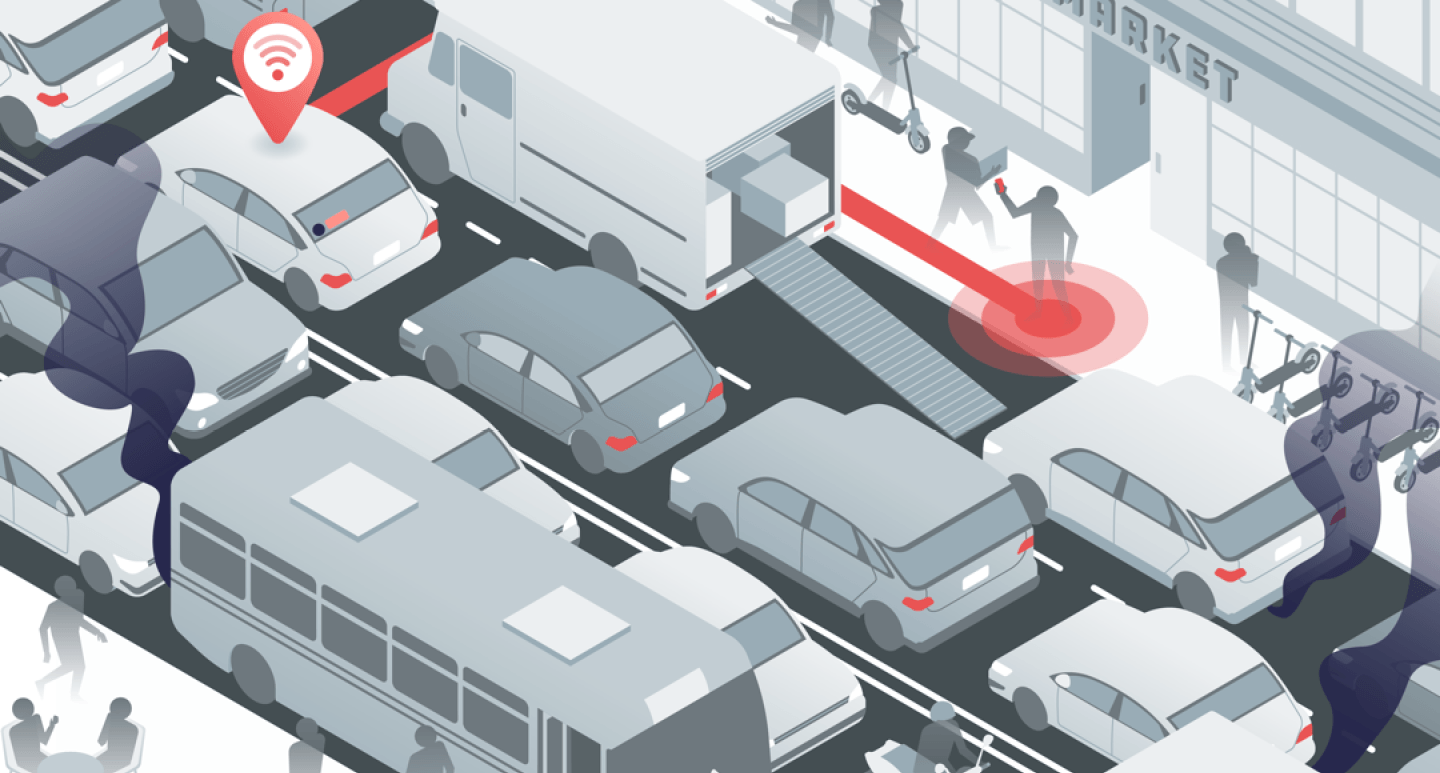City Tech Launches New Solution to Address Urban Curbside Chaos
Many people don't
really notice the curb unless they trip over it – but the space between city
sidewalks and streets has become a battle ground for the future of urban
mobility. Whether you are circling to find parking, walking around an illegally
parked car in the bus lane, trying to flag down your Uber, avoiding scooters
and bikes littered on the sidewalk, or trying to track down an online purchase,
curbs have become highly-competitive urban real estate. For residents and
businesses that increasingly rely upon them, city curbs may feel like chaos.
From this chaos,
however, unique opportunities are emerging to transform city curbs into dynamic
and valuable assets in our urban transportation systems. City Tech Collaborative and its partners have launched a new Curbside
Management Solution
to empower cities to make better use of a vital public
asset, yielding economic benefits and improved quality of life for residents. Beginning
in early 2020, the team will combine new data on curb demand and economic value
with emerging technology and pricing models to enable coordinated, dynamic
curbside management.Partners will explore piloting the tools at an active short-term pick-up and drop-off curbside
location in Chicago, then seek other cities to scale the solution.
The Curbside Management Solution includes two components:
using previously unavailable data on curb usage and related economic activity to
model demand for the curb and value to users, and creating a suite of tools to
better manage curbside operations through datasets, pricing, and other
technologies. Combining
technology and analytics expertise from Bosch
and HERE Technologies
with data and modeling support from Stantec, Teralytics, SpotHero,
and Carrier Direct, the team will map curbside activity and identify
areas to produce efficiencies; analytical and
pricing models will assess the economic activity of curbs and create a crucial
foundation for flexible
management, dynamic pricing, and forward-looking urban design solutions for
short-term curb use.
Curbs highlight the tension over competing interests in this valuable urban real estate. The model will help cities balance competing priorities such as food deliveries, street parking, passenger pick-up and drop-off, loading zones, and public transit based on time- and location-specific usage. The solution will help cities understand, allocate, and manage curbside space more effectively by providing market-driven access to those who depend on it – thus relieving curbside pressure, creating efficiencies for users, and improving resident safety. At the same time, the model can inform local officials on how to better implement curbside pricing and payment systems to balance economic goals, public needs, and public policy priorities like equity and environmental quality.
“As the macro shifts in the transportation industry are becoming more dynamic, we are coming to realize just how instrumental this fixed asset is when it comes to efficient mobility," said David Leopold, Director of City Solutions at City Tech Collaborative. "It is vital for cities to have a conversation about the relative value of the curb’s many diverse uses, weighing the individual benefits (i.e. private vehicle parking) versus the shared benefits (i.e. bus stops) and identifying a symbiotic relationship between the two...With open conversations, data-sharing, and a dynamic, forward-looking approach, the curb can rise to meet the growing demands of the community."
The Curbside Management Solution is one of many projects of City Tech’s Advanced Mobility Initiative, an effort involving over 20 industry partners to create a more seamless and frictionless transportation system with increased accessibility and reach for urban residents. The Initiative includes six impact areas that City Tech will address through thought leadership, resident engagement, and solution development. [More about the Advanced Mobility Initiative here.]
About City Tech
: City Tech is an urban solutions accelerator that tackles problems too big for any single sector or organization to solve alone. City Tech’s work uses IoT sensing networks, advanced analytics, and urban design to create scalable, market ready solutions. Current initiatives address mobility, healthy cities, connected construction, and emerging growth opportunities. City Tech was born and raised in Chicago, and every city is a potential partner. Keep up with the latest news by following us on Twitter
and LinkedIn.
